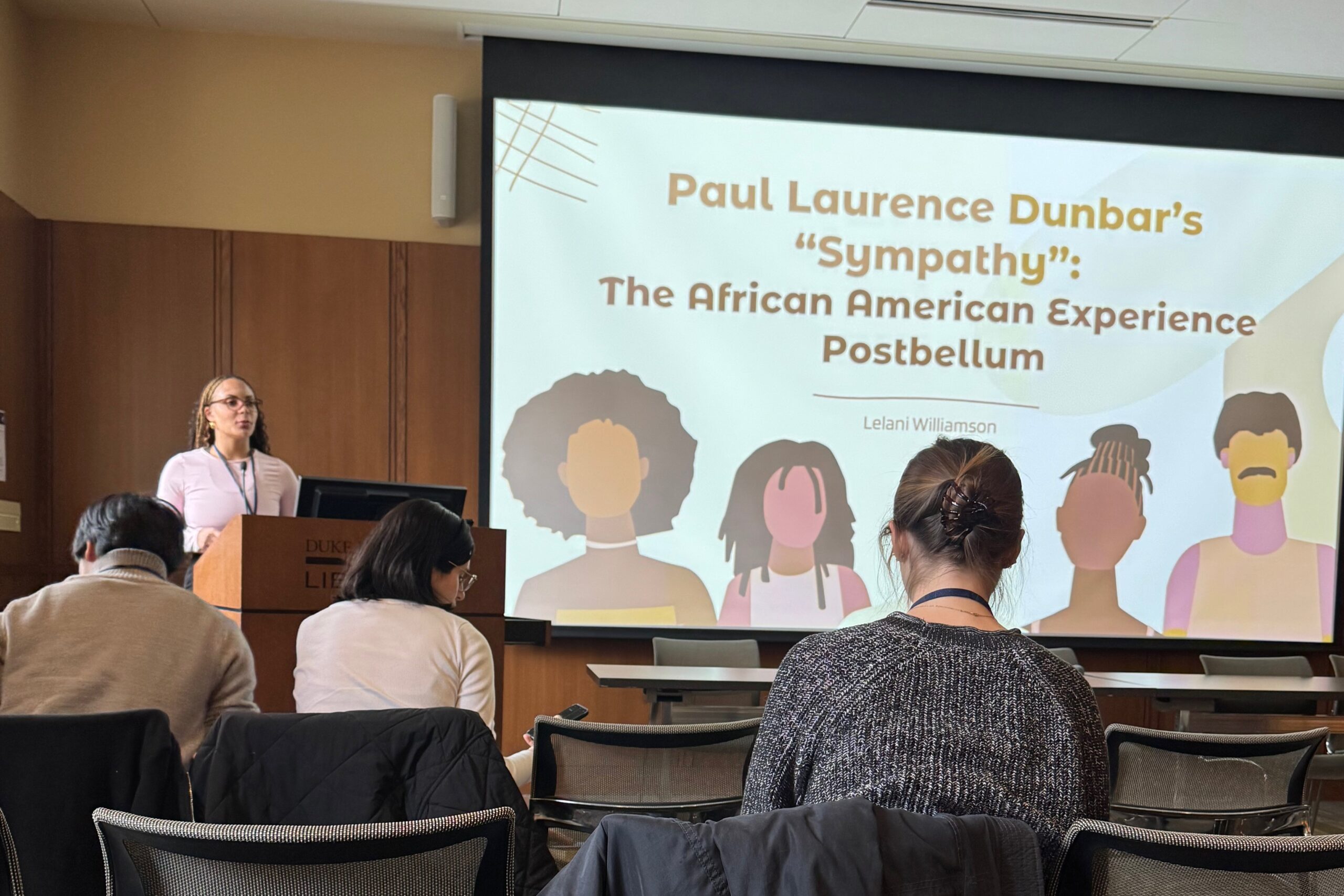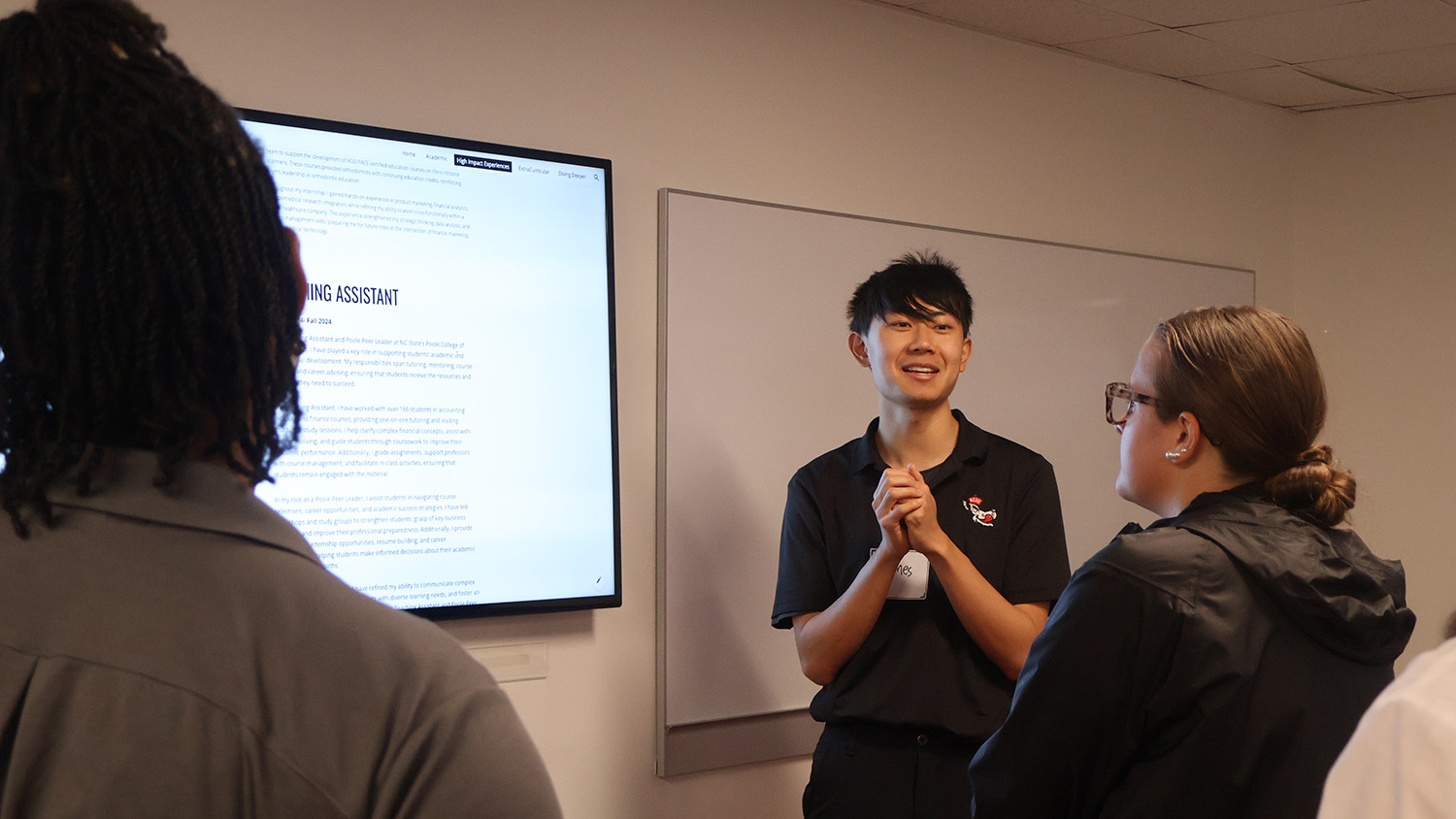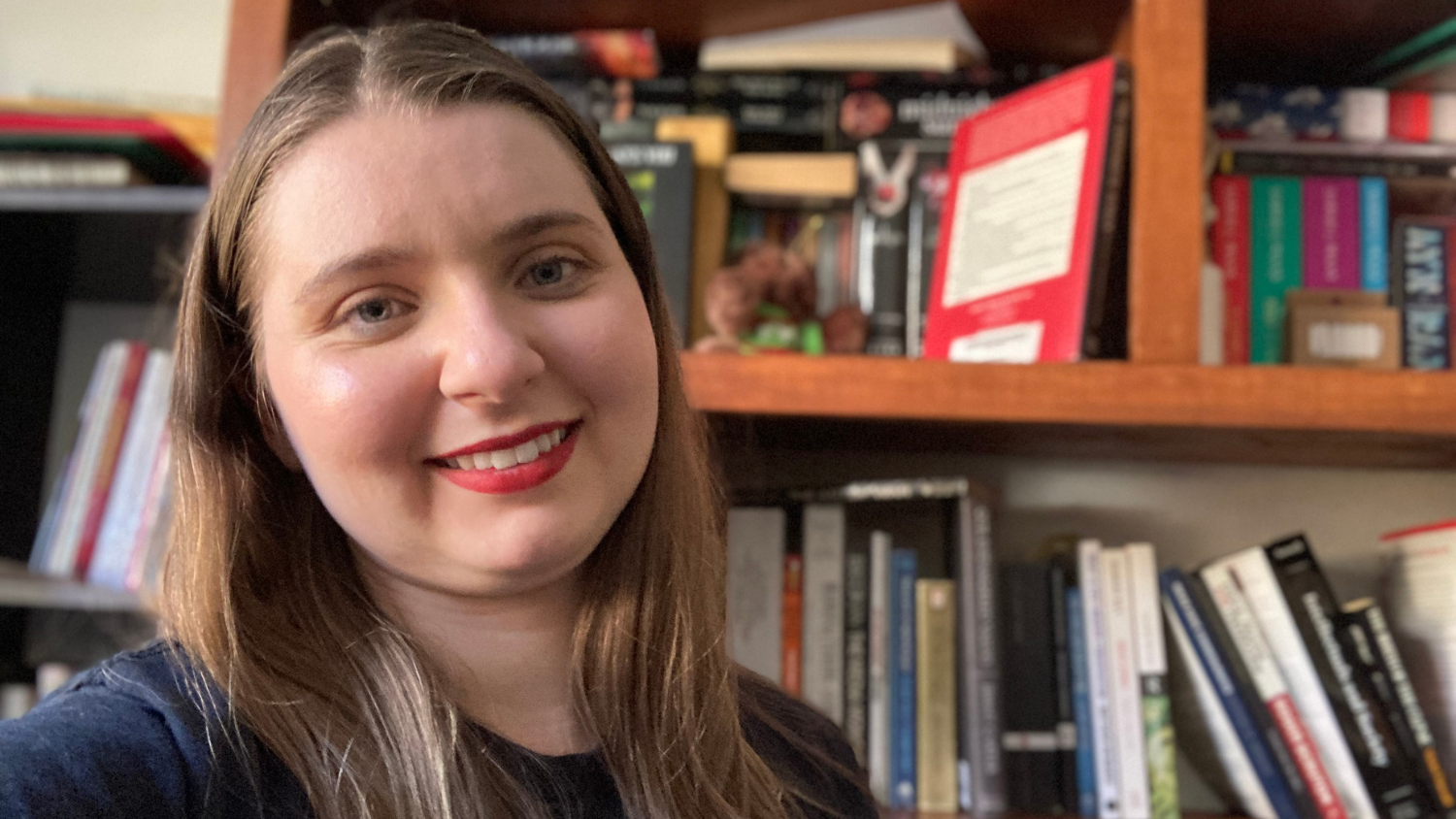Spotlight on Our Students: Ben Masters
The University Honors and Scholars Program (UHSP) interviews Ben Masters, a senior majoring in chemistry who plans to pursue a Ph.D. at the University of Chicago after graduation.
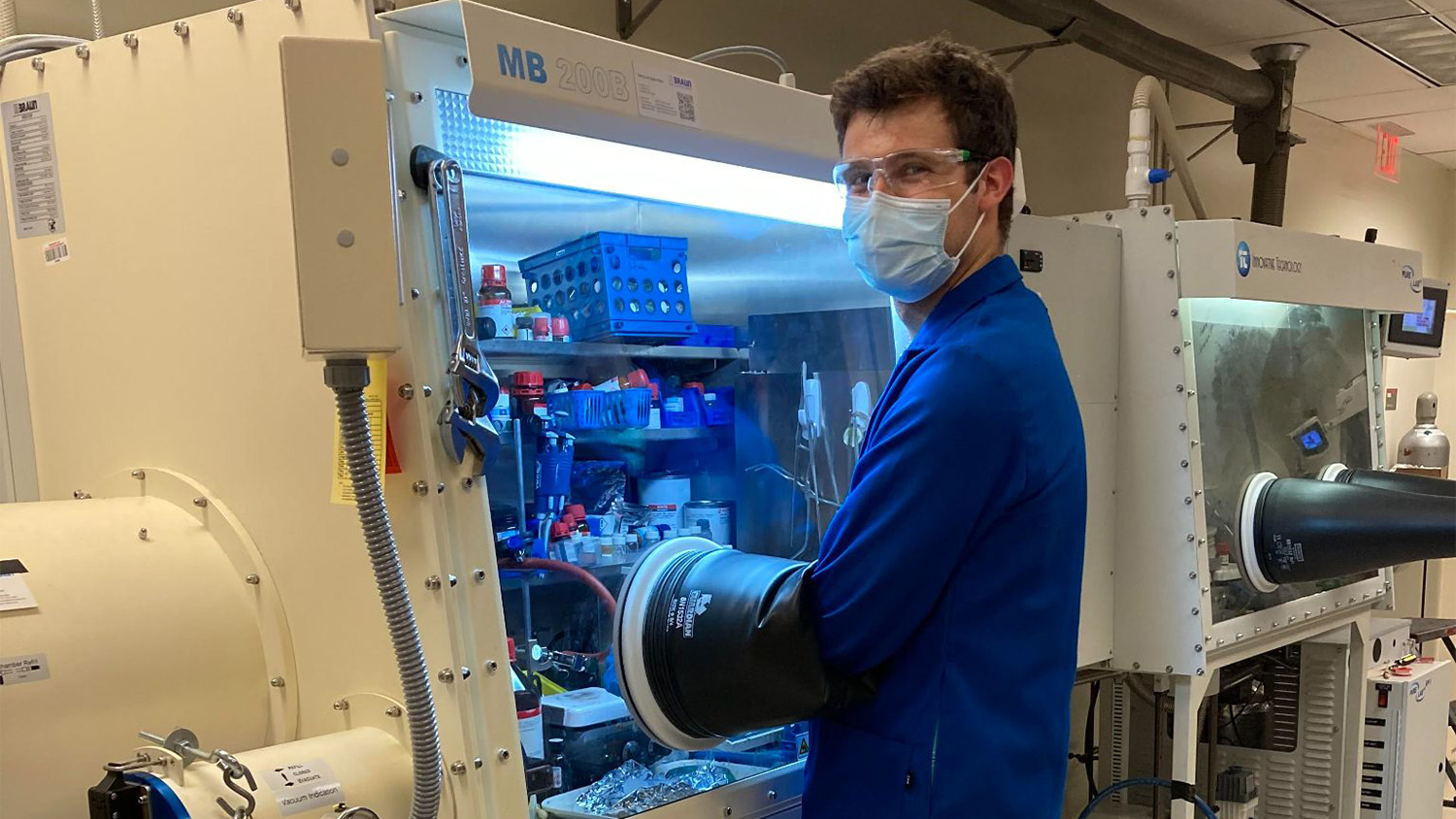
By Chester Brewer
In this edition of Spotlight on Our Students, we were able to talk with University Scholars Program student Ben Masters, a graduating senior majoring in chemistry, about his path through undergraduate research opportunities to pursuing a Ph.D. at the University of Chicago after graduation.
UHSP: Ben, first of all, congratulations on your upcoming graduation! We know you’re very excited and that things are probably moving pretty quickly as you prepare for your next adventure. To get us started, can you tell us a bit about what sparked your interest in the research you’ve been doing?
BM: Well, I was always very passionate about the physics that underlies chemical processes. I wanted to look for a way to combine my love of chemistry in lab work with my love of fundamental physics in a “deep dive” to explain how those complex phenomena work. I am fortunate to have conducted research for the past 2.5 years with the Castellano Group in the Department of Chemistry where I was introduced to projects that focused on the interaction of molecules/materials with light to understand their photophysics. This was a perfect fit for me because it covers exactly what I wanted to focus on, and it relates to my interest in understanding/developing materials to be used in solar cells and solar fuel generation!
UHSP: That sounds like you found a great research fit. What do you hope to learn from this type of research specifically?
BM: Broadly speaking, I learned a lot about how to be an independent learner. Previously, I relied on my teacher walking me through a concept in class; but conducting research has helped me realize how capable I am of answering my own questions through the use of various resources. I also appreciate the opportunity to ask other students for help with a problem. Often, a question will appear in my research that not many people have years of expertise in, so I often rely on scientific literature for explanations and conclusions from others facing the same problem. I also feel like, in research, I used a lot of fundamental concepts I learned in chemistry such as solubility and periodic table trends to troubleshoot and logically reason why something may go wrong in a reaction. I feel as though this helped me apply the same logical thinking in my coursework.
UHSP: That sounds like you really learned how to put your coursework and foundational knowledge into applied action. That is a great feeling, no doubt. What is the most interesting thing you’ve done so far on this project?
BM: I think the most interesting thing I have done so far this semester is use absorbance, photoluminescence, and quantum yield in spectroscopy to help me understand how light interacts with specific materials. I work with CdSe and CsPbBr3 quantum dots, whose optical properties tell about the quality of the material being studied. I love the aspect of being able to see if what I have made is of good quality, as well as how well my material “handles” light to make it a good light emitter.

UHSP: That’s a good feeling, to be able to hone your skills and get immediate feedback. What has been the most challenging aspect of this research so far?
BM: One of the most challenging things I have learned through research is the fact that it takes a lot longer to make progress than one thinks. It is full of trial and error and does not happen overnight, which is a lesson I learned while doing research one summer. However, I love this process because when things do finally work, it means new knowledge is being created step by step.
UHSP: Oh, the process of trial and error is crucial. And it sounds like it also helps you feel more comfortable about “failure” — essentially accepting that failure is part of the learning process. What is the most valuable thing you’ve learned there so far?
BM: I have learned that organization and curiosity will take one a long way in research. I find that if I do not organize my thoughts in my lab notebook, it will be hard to follow along the next time I want to do an experiment. Also, being able to plan out the next steps for an experiment is a good way of keeping myself focused on what I need to do next to get the most out of my time in the lab. Another valuable skill is approaching problems with a general sense of curiosity about finding how something works rather than just about the end result. The journey is a big part of research!
UHSP: Oh man, yes, learning is indeed the journey. It also sounds like you’re learning how valuable organizing your thoughts and your time can be. How would you say your time in the UHSP prepared you for this experience?
BM: The UHSP always taught me to pursue curiosity and to seek out new experiences. I originally started off in a different major because it was a path a lot of people took. However, I realized by following which classes I truly enjoyed and was passionate about, I would find an alternate path that was right for me in the end. In the future, I also find myself eager to connect my research with broad human issues such as climate change, and the UHSP has helped me realize this can only be accomplished through collaboration across many disciplines of study and listening to others’ perspectives to see where you can help.
UHSP: When you can step back and see how your choices moved you in a certain direction, that is valuable self-knowledge that you can apply in many different situations. What would you tell other students about how to prepare for experiences like this?
BM: A lot of people do not know where to start finding research projects. One of the best ways to get started is by talking to a professor whose class you’re interested in and asking them about their research (trust me they will want to talk about it!). Another good place to go is on your department’s website and go to their research pages. Reach out to faculty by email to introduce yourself and ask about their research. Then see if they need any help on any of their projects. Do your homework though. Try to know a little about their work before you contact them. Even if they do not have any available spots on their projects, they might be able to help point you in the right direction. Research is one of my favorite activities I have done at NC State and it is leading me toward the career I have always wanted!
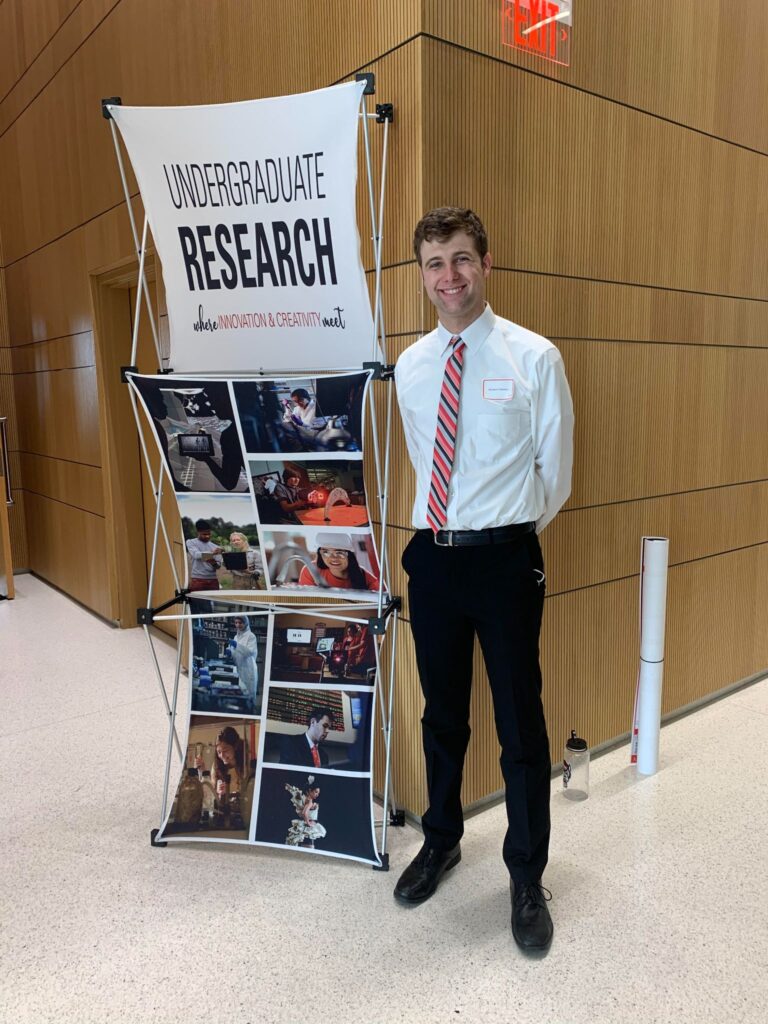
UHSP: That is really good advice for students who are interested in undergraduate research. We would also add the recommendation to contact the Office of Undergraduate Research. They’re great. Now then, to wrap things up, Ben, could you tell us what’s the best bit of advice you’ve ever received?
BM: Life is too short to not do what you are passionate about! If you are not happy doing what you’re doing, it is never too late to pick a different path. I feel like I have found my path because even though research can have long hours and times of failure, I don’t think there is anything I would rather be doing than science every day!
UHSP: It truly sounds like you’ve found the right path. Again Ben, congratulations on graduation. And best of luck on your next step at the University of Chicago.
